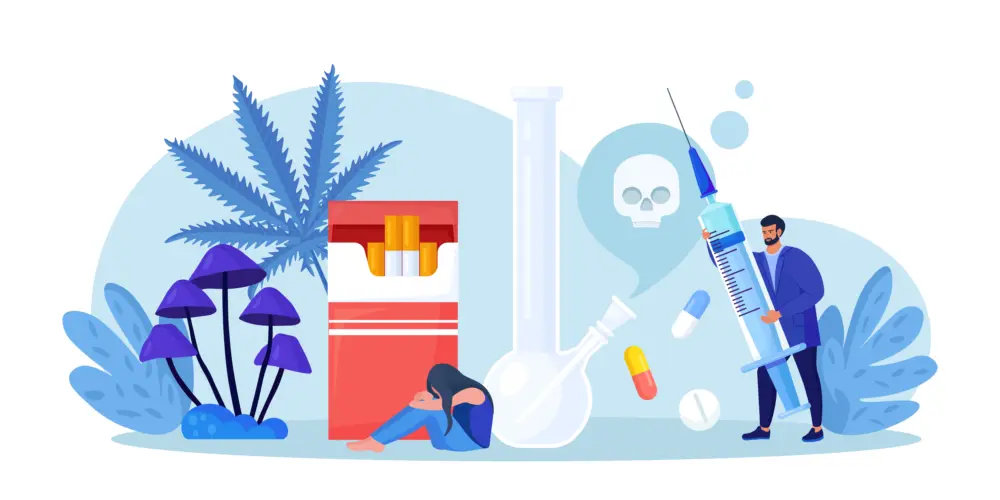Addiction affects millions of individuals worldwide. It can disrupt lives, strain relationships, and undermine physical and mental health. Understanding its underlying causes, and effective treatment approaches is crucial for addressing this pervasive issue.
Defining Addiction
Addiction is commonly defined as a chronic, relapsing disorder characterized by compulsive drug seeking, despite harmful consequences. However, it extends beyond substance abuse and can include behaviours such as gambling, gaming, pornography or compulsive eating. At its core, addiction involves the inability to control impulses despite negative outcomes.
Causes of Addiction
Numerous factors contribute to the development of addiction, including biological, environmental, and psychological elements. Genetics play a significant role, as individuals with a family history of addiction are at higher risk. Environmental factors such as exposure to drugs, trauma, stress, and peer pressure can also increase vulnerability. Additionally, mental health disorders like depression, anxiety, or trauma often co-occur, further complicating the picture.
Neurobiological research has revealed that addiction involves changes in brain chemistry, particularly in areas related to pleasure, reward, and decision-making. Drugs and certain behaviours hijack the brain’s natural reward system, leading to intense cravings and compulsive behaviour.
Treatment Approaches
Treating addiction requires a comprehensive, multidisciplinary approach tailored to the individual’s needs. Effective treatment typically combines medical intervention, therapy, and support services. Here are some commonly used approaches:
- Detoxification: For individuals addicted to drugs or alcohol, detoxification may be the first step. This process involves safely managing withdrawal symptoms under medical supervision.
- Medication-Assisted Treatment (MAT): MAT combines medications with counselling and behavioural therapies to address substance use disorders. Medications can help reduce cravings, alleviate withdrawal symptoms, and normalize brain function.
- Behavioral Therapies: Various therapeutic approaches, such as cognitive-behavioral therapy (CBT), motivational interviewing, and contingency management, help individuals identify triggers, develop coping skills, and modify unhealthy behaviors.
- Support Groups: Participation in support groups like Alcoholics Anonymous (AA) or Narcotics Anonymous (NA) provides peer support, encouragement, and a sense of community for individuals in recovery.
- Dual Diagnosis Treatment: Since addiction commonly co-occurs with mental health disorders, integrated treatment for both conditions is essential. Dual-diagnosis programs address underlying psychiatric issues as well.
- Holistic Therapies: Complementary therapies such as yoga, mindfulness meditation, and art therapy can complement traditional treatment approaches by promoting overall well-being and stress reduction.
- Family Therapy: Addiction often affects not only the individual but also their loved ones. Family therapy helps improve communication, rebuild trust, and address family dynamics that may contribute to or result from dependence.
Conclusion
Addiction is a complex and challenging condition that requires a multifaceted approach to treatment. By addressing biological, psychological, and social factors, individuals can embark on the path to recovery and reclaim their lives. With proper support, understanding, and evidence-based interventions, overcoming addiction is possible, and a fulfilling, substance-free life can be achieved.
Ready to begin? Start your online therapy journey today. Book your first session now.




